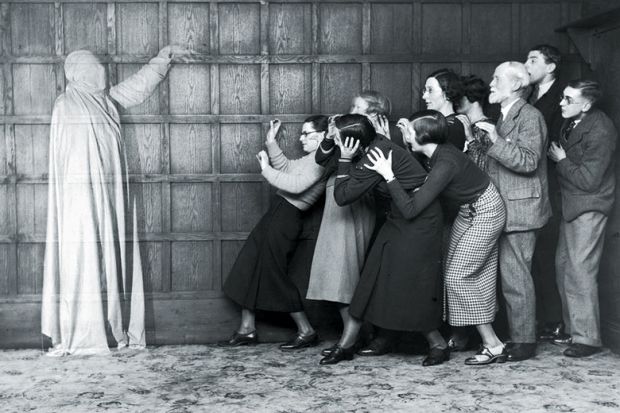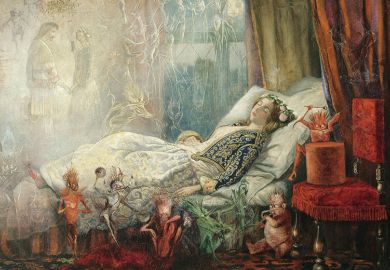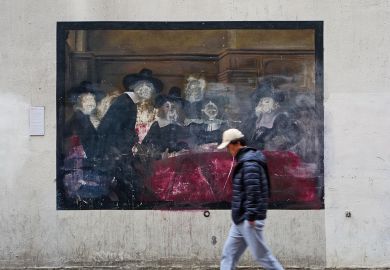When academics gather for a conference on ghosts and other supernatural beings this week, one question will be largely absent – whether they actually exist.
“Like most people,” said Rachael Ironside, lecturer in events management at Robert Gordon University, “I’ve had unusual experiences of thinking about somebody and the phone goes and they are the person at the other end; and of walking into somewhere and feeling a little bit spooked or uncertain.”
But Dr Ironside, who is organising the Supernatural in Contemporary Society Conference, being held at Robert Gordon from 23 to 24 August, had little more to say about how she interpreted such experiences or where she would locate herself on the spectrum – from total scepticism to convinced belief – about beings such as ghosts, vampires, witches and extraterrestrials.
“I’ve been involved in the academic research side for about 10 years, and the more you research this area, the less belief becomes important,” she said. “It’s the value and persistence of the supernatural in the modern world that really interests me…The polls still suggest that over half of people hold some sort of belief in the supernatural…Cities now compete to be the most haunted in the UK.”
The conference, therefore, will be “stepping away from the ontological questions” about ghosts and addressing “much more important questions about the role and importance the supernatural has for us as people and as a society”.
Dr Ironside’s own research includes an audit of hauntings across Scottish castles, revealing that 158 claim to have ghostly encounters and stories attached to them. Her doctoral studies looked at “people who take part in the subculture of ghost-hunting or paranormal investigations”, and she has a continuing interest in “how people use the ghostly to understand and interpret the past” and “how heritage sites use ghost stories to attract and engage visitors”.
Topics being explored at the conference include exorcism and “cinematic Satanism”, while there will also be a panel discussion in a “haunted” castle.
It is hard to imagine a more important question than whether the dead live on, and this leads into some major moral issues. Were the spiritualists who ministered to those who had lost sons in the First World War, for example, providing genuine comfort or just using mumbo jumbo to cruelly exploit the bereaved?
Dr Ironside seemed more interested in “how the supernatural is represented in different contemporary settings”, adding that “people researching in this area tend to be quite open-minded”. But she did agree to report back on whether anyone on the tour of Crathes Castle actually saw a ghost.
POSTSCRIPT:
Print headline: Supernatural ‘has hold on scholars’
Register to continue
Why register?
- Registration is free and only takes a moment
- Once registered, you can read 3 articles a month
- Sign up for our newsletter
Subscribe
Or subscribe for unlimited access to:
- Unlimited access to news, views, insights & reviews
- Digital editions
- Digital access to THE’s university and college rankings analysis
Already registered or a current subscriber? Login







